Most folk interested in classic cars will be familiar with those of the Allard marque as being the most powerful British sports cars of the 1950s. Comparatively, few will know much about the achievements of the man who created them – Sidney Allard.
Those achievements have never been matched in the history of motorsport, and never will be. For Sidney James Allard (1910-1966) won the British Hill Climb Championship in 1949, finished third in the Le Mans 24 Hours Race in 1950 and won the Monte Carlo Rally in 1952, all in cars of his own manufacture!
Introduction
Between the formation of his Allard Motor Company in 1946, and production ceasing in 1958, it had produced over 1900 cars for the worldwide rich and famous.
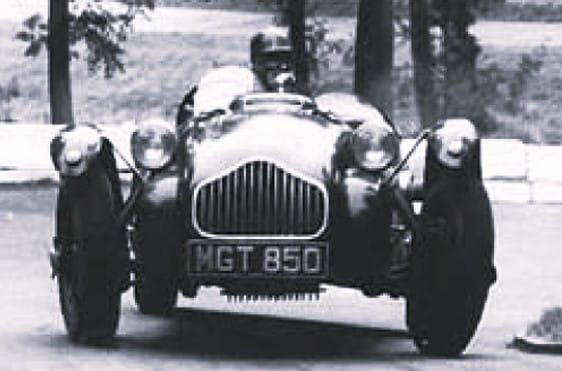
1950 Allard J2 was third at Le Mans
Influencing iconic American sports cars
These had a particularly strong following in the USA, and were a major influence on the creators of two immortal American sports car icons. This was hardly surprising as all Allard cars were powered by a variety of big American V8 engines and as Cobra-creator Carroll Shelby, a driver and admirer of Allard cars, once famously quipped “There ain’t no substitute for cubic inches…”
In fact, fans of the iconic Shelby Cobra owe a great debt to Sidney Allard for it was Shelby’s experiences while winning races with an Allard in the USA that led to him following its design parameters of a big, powerful engine in a relatively lightweight chassis.
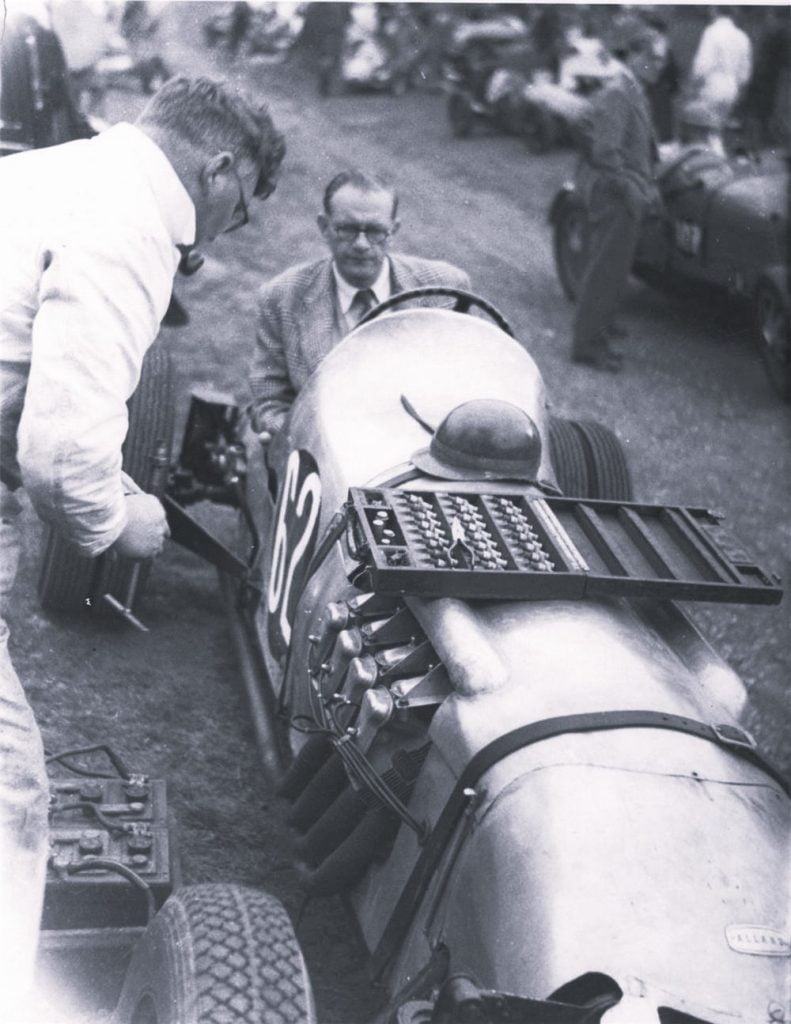
Sydney Allard in Steyr Racer
In 1961, after winning the 1959 Le Mans 24 Hours Race in an Aston Martin, he sought out a British sports car into which he could shoehorn an American V8 engine. Aston Martin was not interested in building such a “mongrel” so Shelby drove about ten miles from its workshops at Hanworth in Middlesex and did a deal with AC Cars in nearby Thames Ditton, on the Surrey side of the river.
Out came the six-cylinder Bristol engine from the good-looking AC Ace; in went a 289 cubic inch (4.7 litres) Ford V8 and so was created the iconic Shelby Cobra. Thank Sidney Allard for planting the seed of that creation in Shelby’s mind!
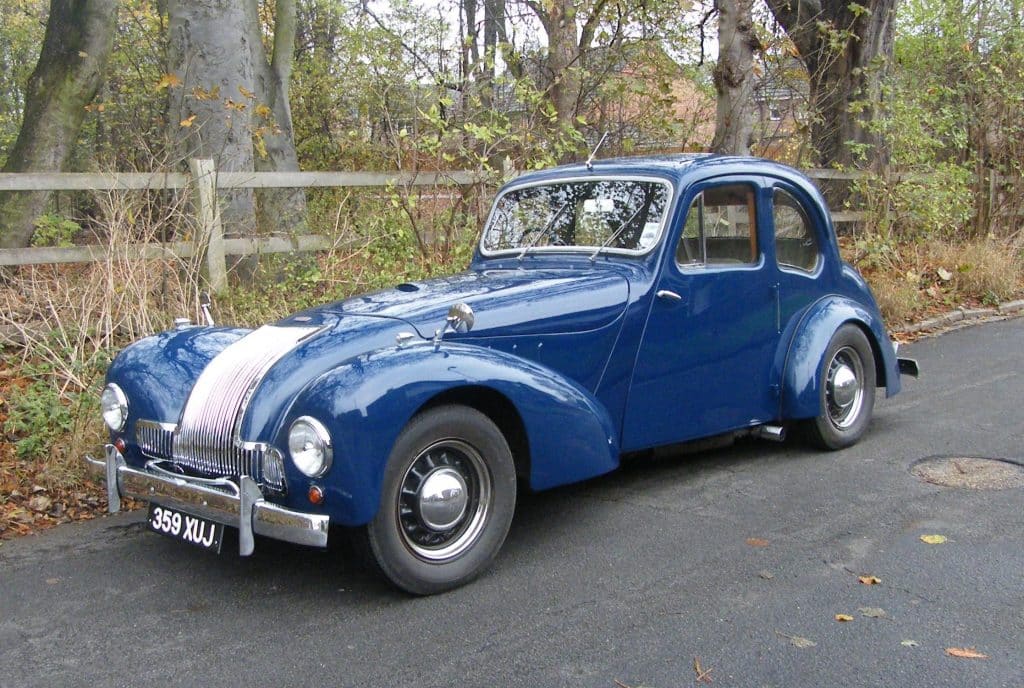
1947 Allard M1 – First Production Car
Motorsport Career: 1920s
Sidney’s own motorsport career had begun in pre-war days and was a natural progression from working with his family’s major Ford dealership in Clapham. His first races were in 1929 in a motorcycle-engined Morgan three-wheeler with which he won a Brooklands race for ‘cyclecars’ at a 73mph average around the steep bankings of the Surrey speedbowl.
It was with this car that he first started doing things his way when he converted it to a four-wheeler and by 1935 he had abandoned motorcycle V-twin power in favour of the legendary American ‘flathead Ford’ side-valve V8.
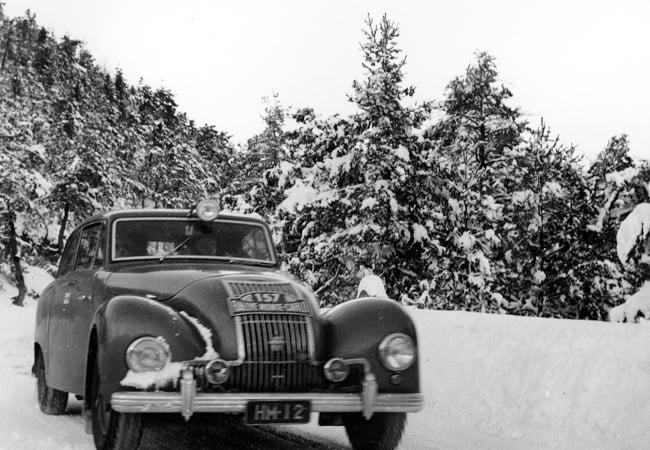
192 Allard won the Monte Carlo Rally
Motorsport Career: 1930s
In 1935 he won the sports car class at the Brighton Speed Trials in a Ford V8 special and went on to win with similar cars in such diverse events as sprints and hill climbs, beach races and long-distance trials such as the London to Land’s End which included special off-road stages on the route.
One of his successes was establishing the sports car record at the inaugural Prescott Hill Climb in 1938, although on one of his runs prior to that he went straight on at one of the corners and out into the adjacent scenery! That section at the classic venue is still known as “Allard’s Gap”…
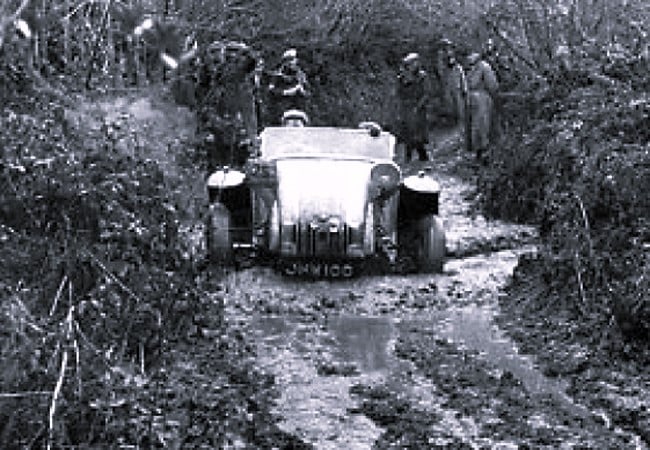
Allard in the Lands’ End Trial
1930s: Ben Nevis
Another, potentially more serious, incident had come in 1937 on a rather more arduous climb when Sidney attempted to drive one of his Allard Specials to the top of Ben Nevis in Scotland, the highest mountain in the British Isles. The attempt gained a lot of publicity but for the wrong reasons as he went off the rock-strewn trail and the car rolled over. Luckily he escaped with just a bruising.
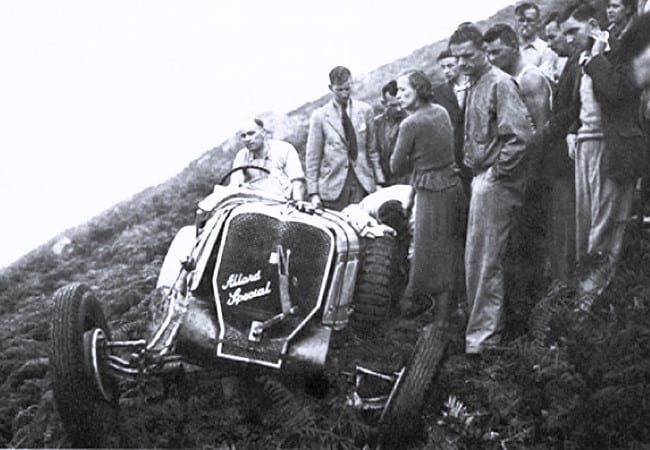
Allard after Ben Nevis crash
The publicity stunt had been to promote his cars to potential customers for by that time his successes had let to a great deal of interest in them. The Allard Special was put into limited production with a choice of either Ford V8 or Lincoln V12 motors. The first sale was of a Ford-powered sports car in 1937, while a four-seater was offered the following year.
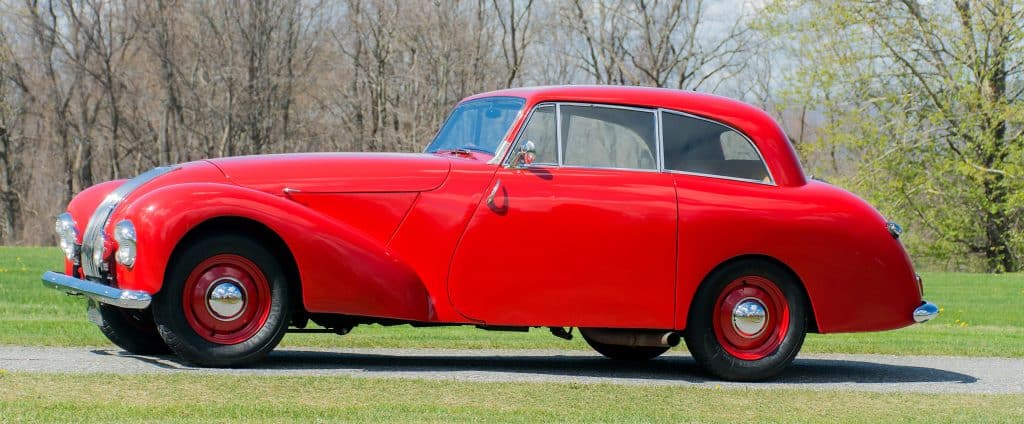
Allard P1 1951
1940s
During the Second World War Allard operated a large repair shop for the Ministry of Supply Army Auxiliary, fixing army vehicles including Ford trucks and Jeeps. By 1943 this had 225 employees and was renovating more than 30 vehicles a week.
It was with a WWII V8 engine that Sidney built his first post-war special but not one sourced from the Allied side. Instead he had acquired an air-cooled 3.5-litre engine designed by Ferdinand Porsche and built by the Steyr factory in Austria for use in a Wehrmacht troop carrier. With 85bhp on tap it powered the single-seater special that took Allard to the 1949 British National Hill Climb Championship title.
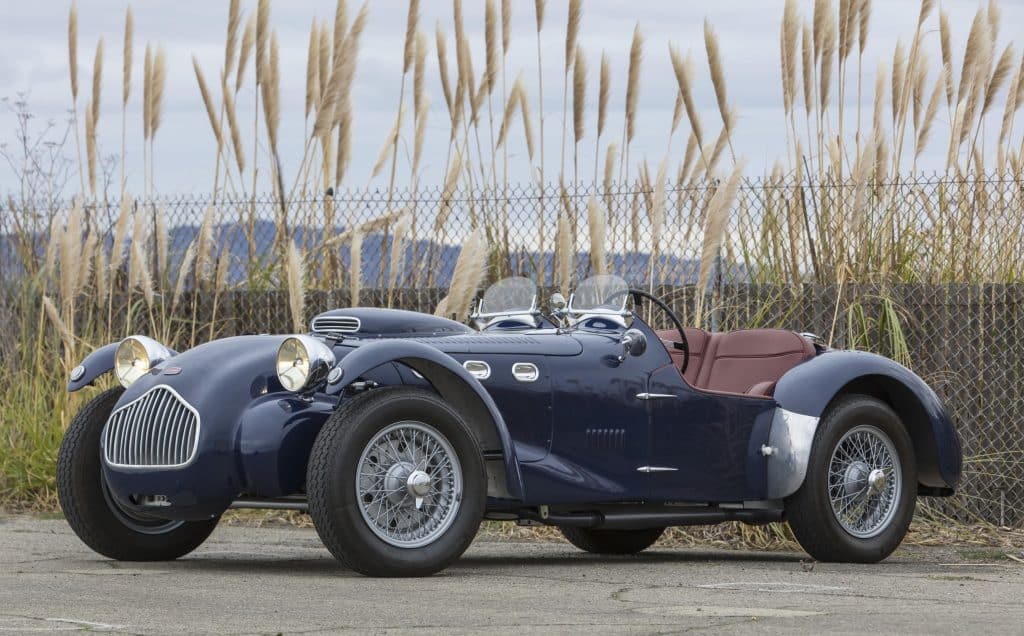
Masten Gregory raced this J2 Allard
By that time, the Allard V8 sports cars were in production, both selling well and performing successfully in international events. In 1949, for example, Allard cars won the team prize in the Monte Carlo Rally with Sydney Allard himself (not a team member) finishing in 24th place.
1950s
In 1950 he finished eighth in the event but better yet was still to come. He achieved true international recognition for himself and his cars by winning the rally in 1952 driving a P1 Allard sports coupe powered by a 4,375 c.c. Ford V8 side-valve motor. Second was Stirling Moss, in a Sunbeam-Talbot 90.
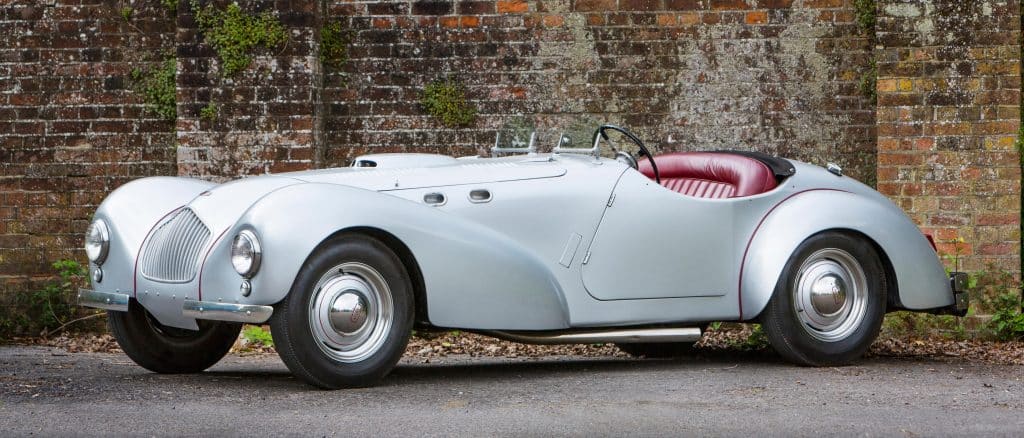
Allard K2
The powerful but comfortable Allard sports saloons were in their element in long-distance road rallies. Meanwhile, the spartan and stripped-down J-series sports cars were very much a force to be reckoned with on both sides of the Atlantic.
1950: Le Mans
It was in one of these that Allard himself took third place at the 24 Hours of Le Mans in 1950, partnered with the American driver, Tom Cole Jr. A gearbox failure left Allard and Cole driving for hours with top gear only but they were aided in this by the wide torque curve of the big 5.4 litre American V8 Cadillac power unit.
Famously, Allard had shown the speed of both his cars and himself when he led the opening lap of the race ahead of the Ferrari driven by World Champion Alberto Ascari and the works Jaguar C-Type of Stirling Moss!
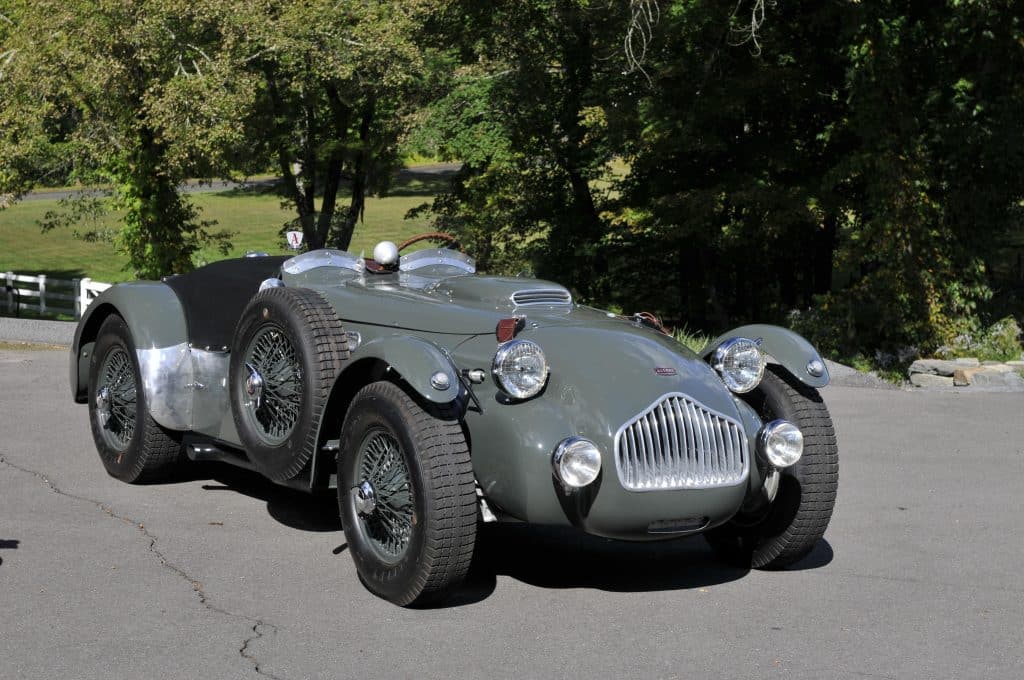
Allard J2X
Exporting to the US
Allard’s cars for American customers were exported to the United States as rolling chassis to be fitted with a motor on arrival. Initially they were fitted with V8 ‘flathead’ (side-valve) engines from Ford, Mercury, or Cadillac but, when the Chrysler ‘Firepower’ engine went into full production for 1952, that quickly became the engine of choice for Allard racers because it was much more technically advanced and powerful than its side-valve rivals.
It was the same size as the 331.cu.ins (5.4 litre) Cadillac but had overhead valve gear and, even more importantly, had a super-efficient hemispherical combustion chamber. It was the first of the now-legendary Chrysler “hemis”.
Allard’s use of big American engines had influenced Carroll Shelby in the creation of his Cobras but there was another equally important figure in automotive history that was influenced by his Allard links.
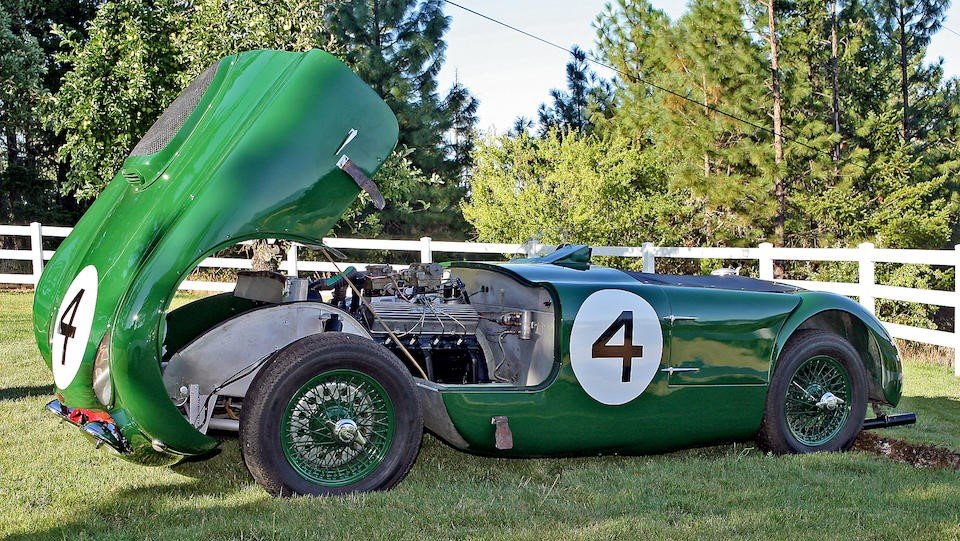
1953 Allard Cadllac Le Mans Car
Ardun
Zora Arkus-Duntov (1909 –1996) was a Belgian-born American engineer whose work on America’s first and most famous sports car earned him the nickname “Father of the Chevrolet Corvette. Of the Jewish faith he and his family had escaped from the Nazis and relocated in the USA in 1942.
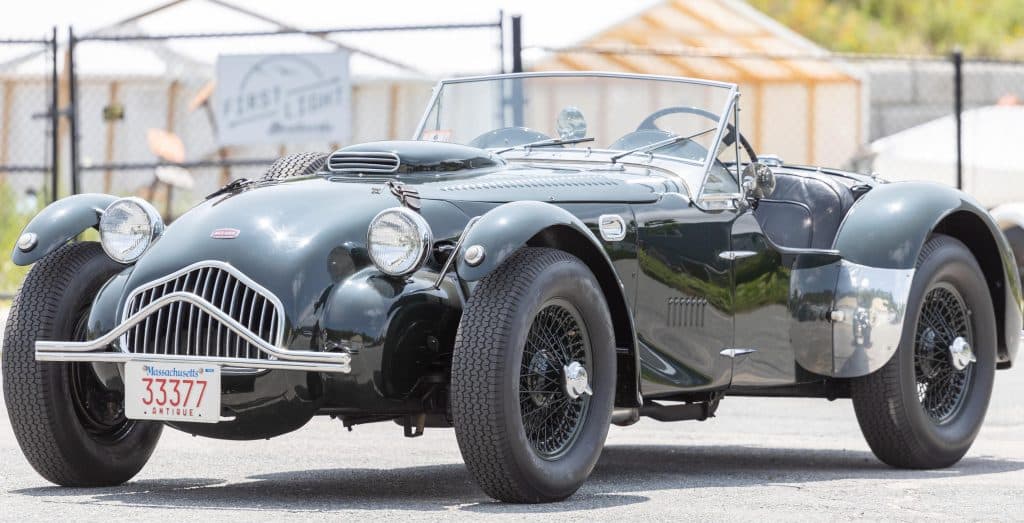
Steve McQueen owned this J2 Allard
Five years later he established the Ardun engineering company to manufacture overhead-valve cylinder heads, significantly with hemispherical combustion chambers, for flathead Fords. These conversions were popular with owners of Allard-Fords, so Sidney Allard invited Ardun’s creator to spend some time with the company in England to improve its cars for Le Mans and similar sports car races.
It was an invitation with two-way benefits. Arkus-Duntov upgraded Allard’s power units while gaining hands-on experience of the J-series concept of a big engine in a compact car as a team driver at Le Mans in 1952 and 1953.
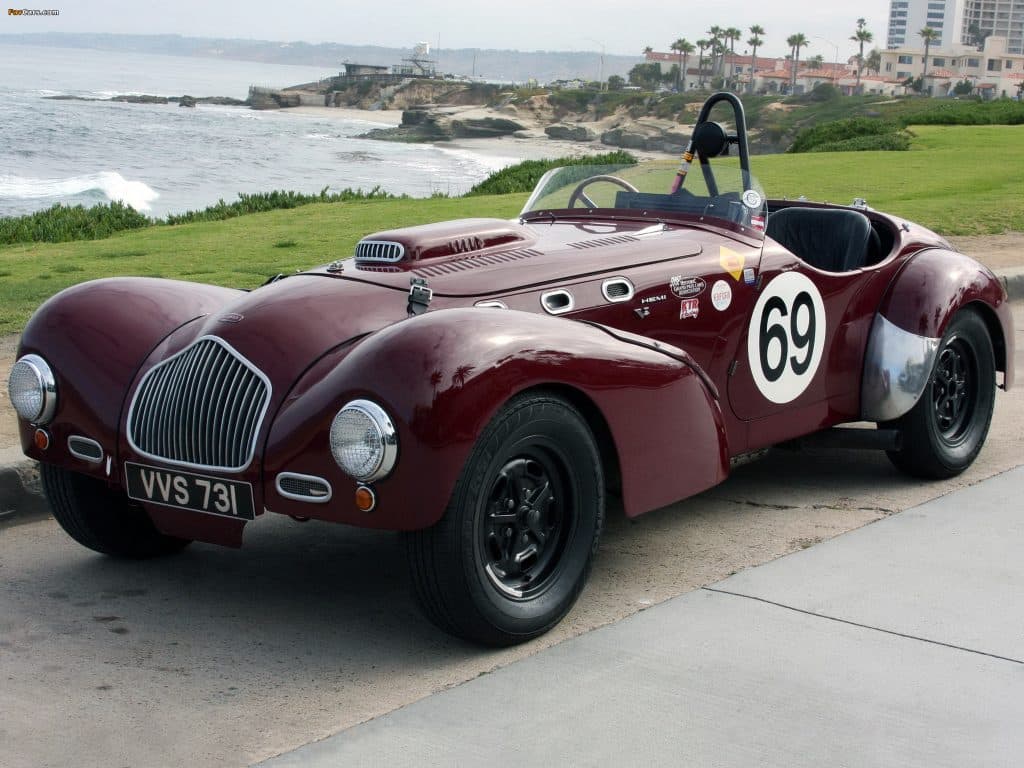
1952 Allard K2
This stood him in good stead when he returned to the USA and saw the first Corvette at the New York Autorama in 1953.
He was most impressed by the body styling by its creator, Harley Earl, but was disappointed by the choice of engine, a pedestrian 235cu.ins (3.9litres) in-line six-cylinder unit.
He voiced his criticisms in a technical paper presented to Chevrolet and was offered a job to re-engineer the Corvette. Within two years the ‘straight six’ side valve engine was gone. It was replaced by the newly-introduced ‘small block’ 350cu.ins (5.7litres) “Chevvy V8” …and the rest is history.
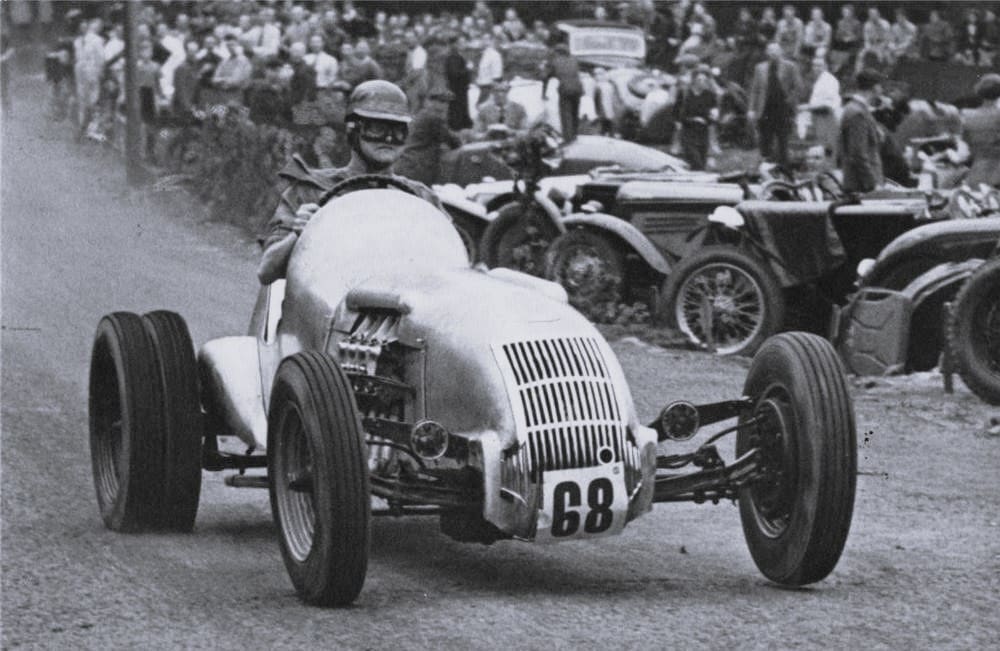
1949 Steyr Allard
Sidney Allard is also considered the father of the British drag racing scene after building the famous Allard Chrysler in 1961. The vehicle is now on display at the National Motor Museum in Beaulieu. That, however, is a big enough subject for a separate article in itself.
Words: Bruce Cox
Photographs: Courtesy of Bonhams Auctions/Allard Archives

